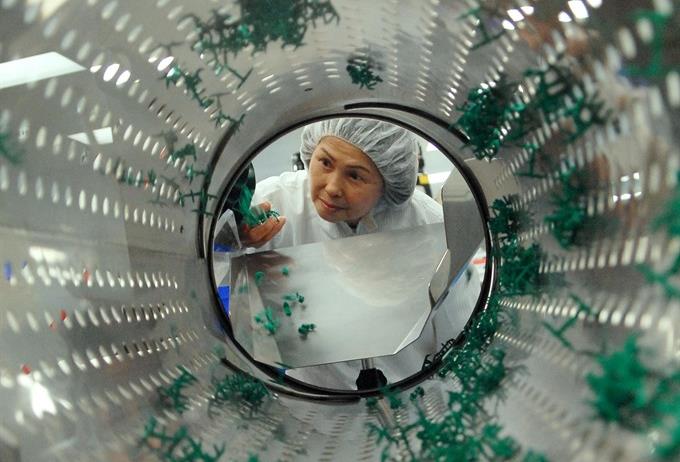The assessment of Foreign Direct Investment (FDI) attraction must be realistic and systematic to tackle shortcomings, said Deputy Prime Minister Vuong Dinh Hue.

The assessment of Foreign Direct Investment (FDI) attraction must be realistic and systematic to tackle shortcomings, said Deputy Prime Minister Vuong Dinh Hue.
He made the request at a conference held in Ha Noi on Monday to discuss a draft plan on ‘Orientation to complete mechanism and policies and to improve the quality and efficiency of FDI attraction and use until 2030’.
The plan will be submitted to the Politburo for consideration.
The plan should not only assess the current situation but also analyse FDI attraction trends and show changes in FDI attraction policies, he said. It needed qualitative and quantitative data to assess FDI commitment, disbursement and contribution.
He noted the plan still lacked measures to connect and transfer technology between the FDI sector and domestic businesses.
The plan was not aimed at developing policies but aimed at finalising mechanisms and policies on FDI attraction and at addressing legal shortcomings relating to tax, business, investment, land use and more, he said.
He asked the Ministry of Planning and Investment to work with HCM City, Ha Noi and southern Binh Duong Province, which are key localities in FDI attraction, to listen to the opinions of local authorities and businesses on policies to improve FDI attraction.
Deputy Minister of Planning and Investment Vu Dai Thang stressed the importance of the plan, saying it would serve as a foundation to attract FDI in line with economic restructuring and growth model renewal.
It would also help the Party and State incorporate FDI attraction to fulfil socio-economic development tasks, he said.
Regarding FDI attraction in the future, the ministry proposed to continue considering FDI as an important part of the economy in the long-term. FDI attraction must be selective, connected with domestic businesses and help improve Viet Nam’s position in the global value chain on the basis of multilateralisation and diversification to ensure the independence of the economy and national security, according to Thang.
Many participants noted the need for policies to encourage investment projects in technology and develop infrastructure in connection with climate change adaptation.
People’s Committee’s vice chairman of northern Hai Phòng city Nguyen Van Thanh proposed the Government invest in transport infrastructure to connect different regions to help attract more FDI while completing mechanisms and policies to improve FDI attraction.
Vice chairman of central Da Nang City’s People’s Committee Ho Ky Minh recommended amending regulations relating to foreign investment attraction such as the laws on businesses, public-private partnership, competition and the Land Law.
He also pointed to the need to reduce conditional business lines.
FDI commitment for 3,046 newly-licensed projects reached nearly $18 billion in 2018. — VNS





